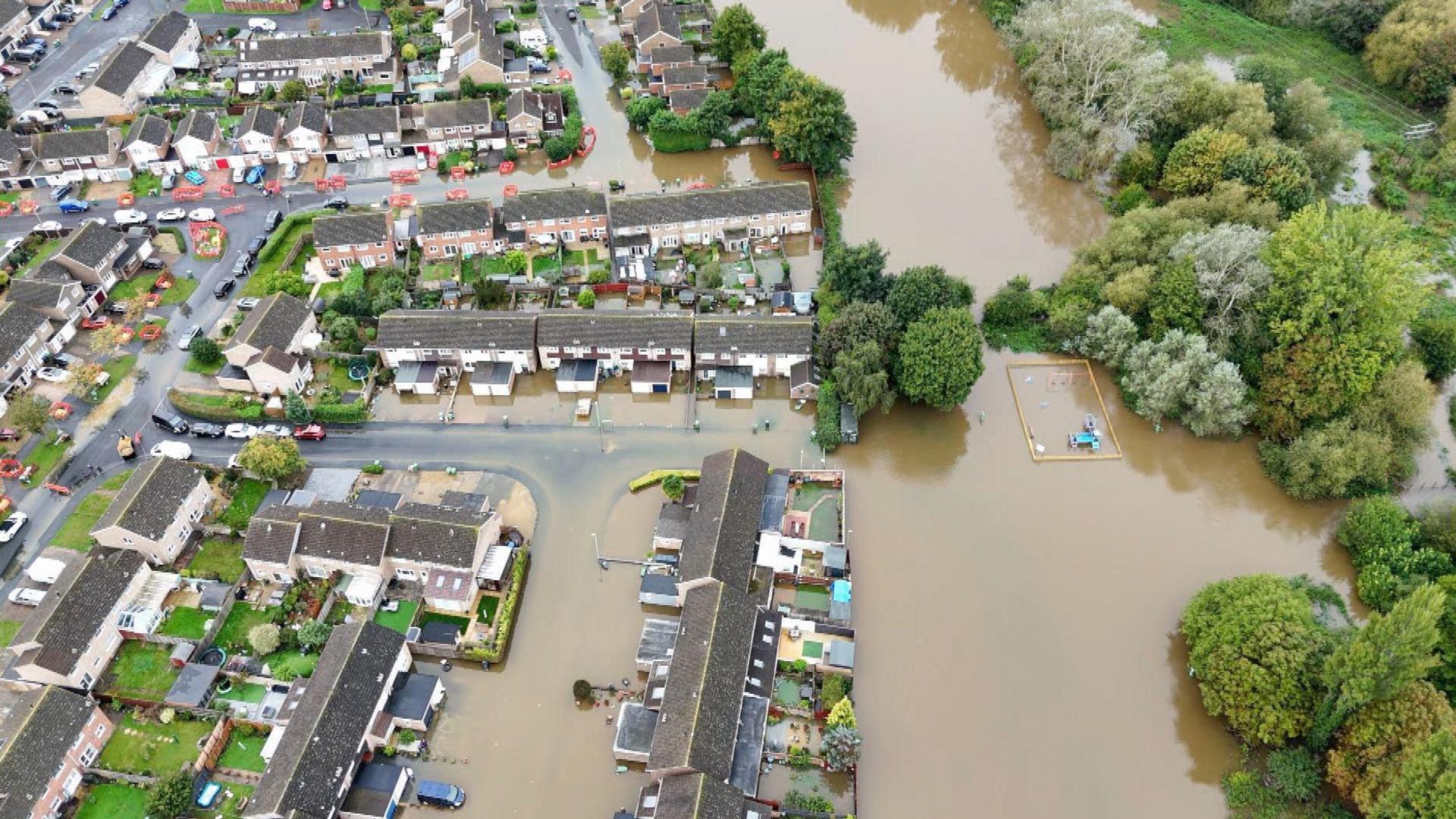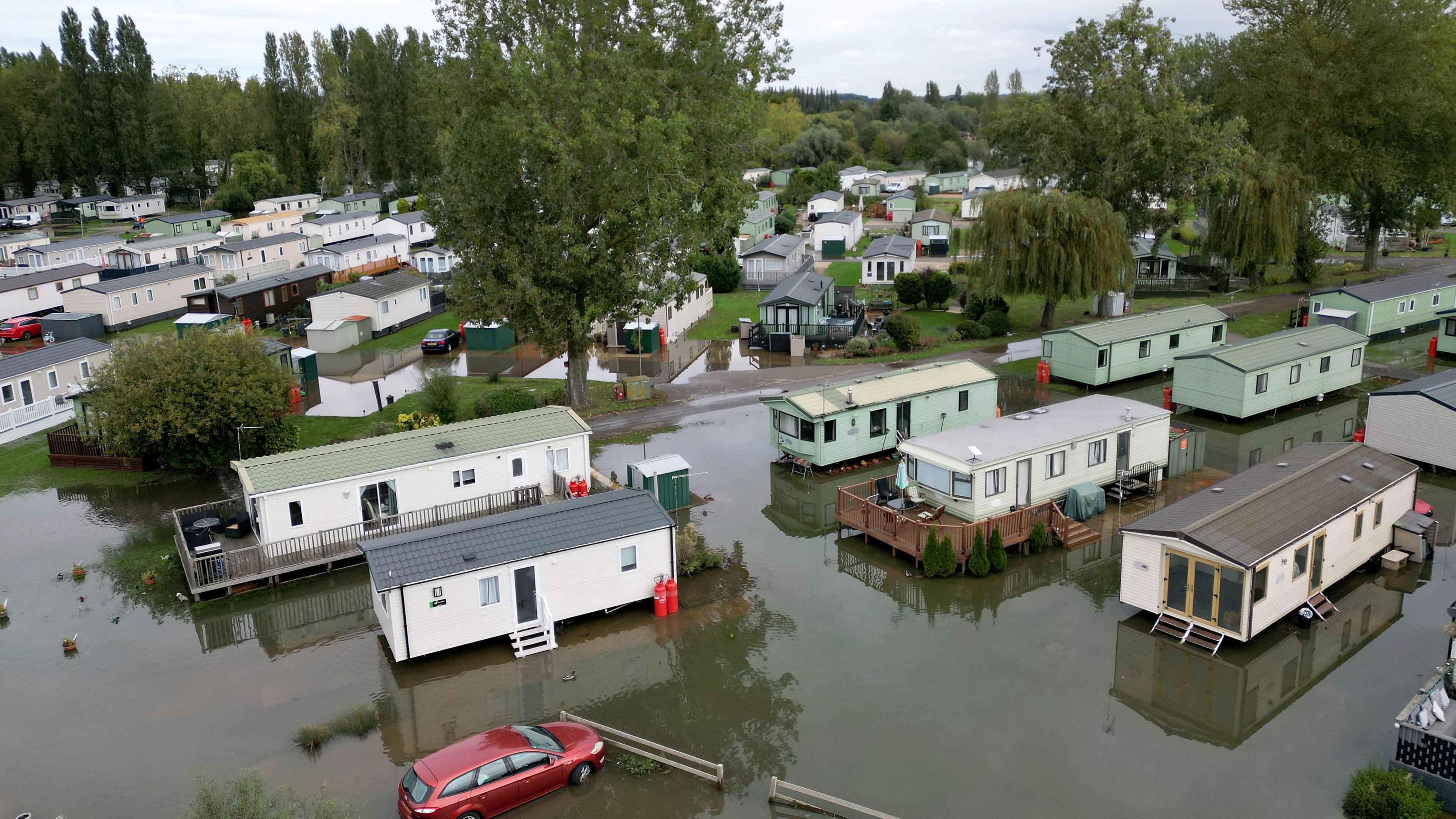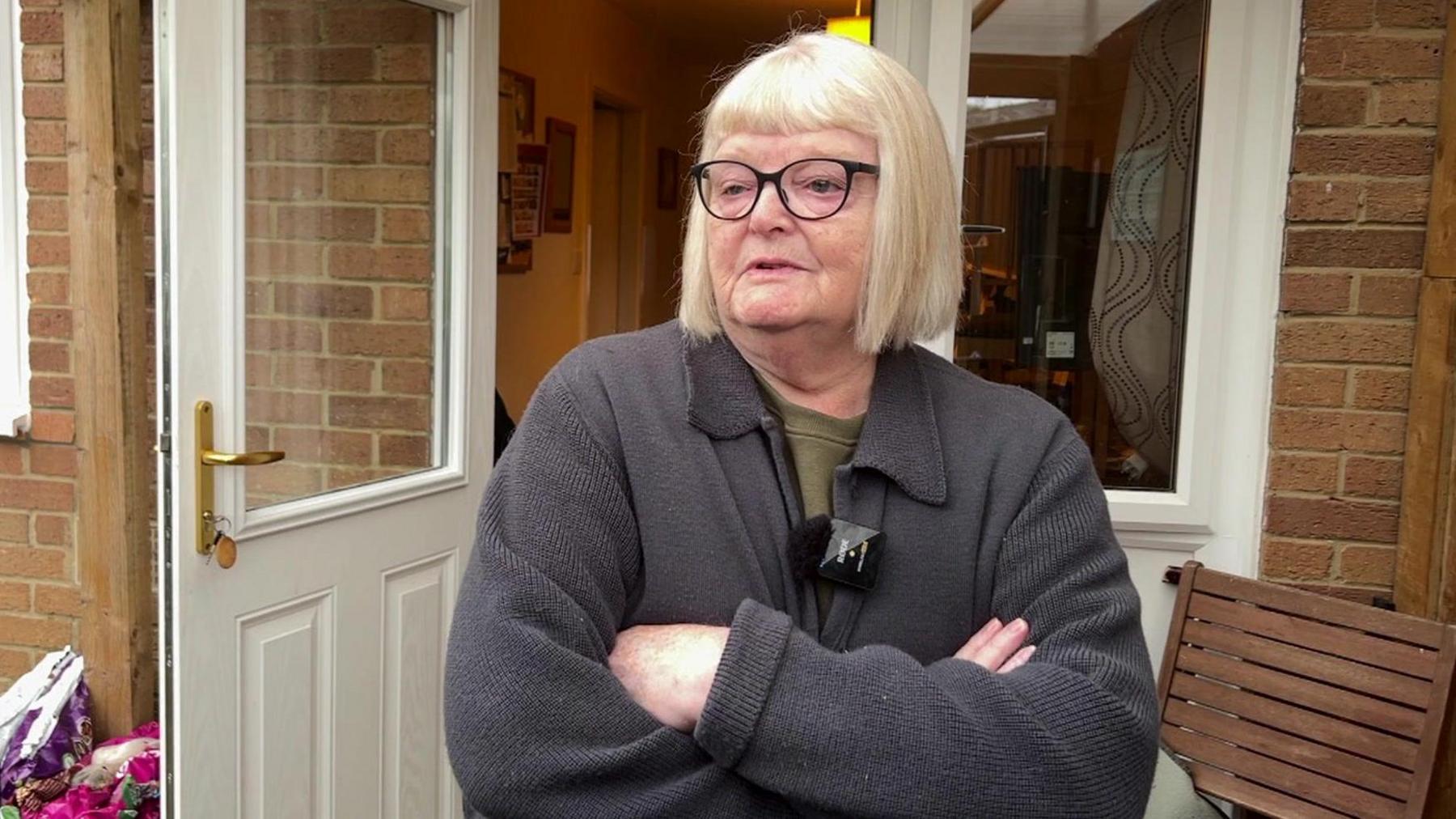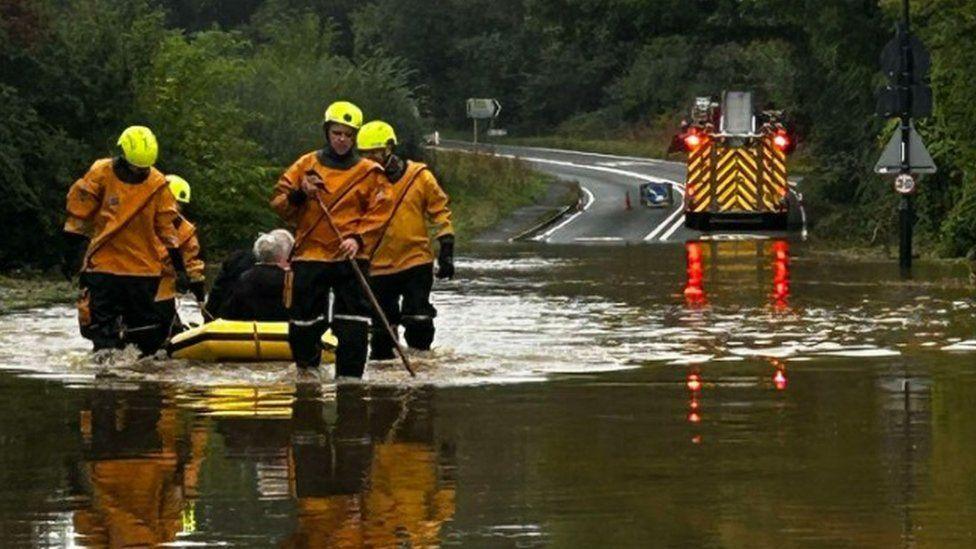Dredging 'a sticking plaster' flooded residents told

Properties in Abingdon were flooded after the River Ock burst its banks
- Published
Dredging has been described as a "sticking plaster" after flooded Oxfordshire residents called for mud and silt to be removed from rivers and streams.
Water went into homes in and around Chaunterell Way in Abingdon on Wednesday when the River Ock burst its banks.
There was anger from residents, with some who said they felt "ignored" and called for authorities to "start dredging".
But the Environment Agency said that dredging and the "constant de-silting of rivers" would not prevent flooding.
Footage showed how water levels rose after the River Ock in Abingdon burst its banks on Tuesday night
Jim King is the founder of the Ock Valley Flood Group and had water come into his garage and home after the recent heavy rain.
He said: "They will not listen to the local people.
"The rivers and the streams are so full of mud and silt. And they can't understand if you dig that out, you've got a place for extra water to go."
Jon House had water come up through the floorboards in his property and decided to evacuate his family, including his six-month-old son.
He was also frustrated at the lack of action to prevent flooding in the area.
"Nothing's being done, no money's being spent to actually stop the houses flooding," he said
"If the stream at the back was dredged, if they cleared that out they could use what they dig out from the stream to create a bit of a barrier as well, just to prevent the flooding coming across."

Jon House and his family - including his six-month-old son - evacuated from their home in Chaunterell Way
But Graham Scholey from the Environment Agency told BBC Radio Oxford that dredging would not prevent rivers bursting their banks.
"I can understand why people think that dredging and constant de-silting of rivers will prevent out-of-bank flooding," he said.
"And the reality is it doesn't - it's a bit of a sticking plaster.
"It can be highly damaging as an operation in its own right. It can be highly expensive.
"It's a short term solution because as soon as you over-widen and over-deepen, the river will start to fill itself in again."
The Radcliffe Meteorological Station in Oxford said it recorded 118.9mm of rain on Sunday and Monday, "significantly higher" than the previous record for rainfall there, set in 1968.
Get in touch
Do you have a story BBC Oxfordshire should cover?
You can follow BBC Oxfordshire on Facebook, external, X (Twitter), external, or Instagram, external.
Related topics
- Published25 September 2024

- Published25 September 2024

- Published24 September 2024
